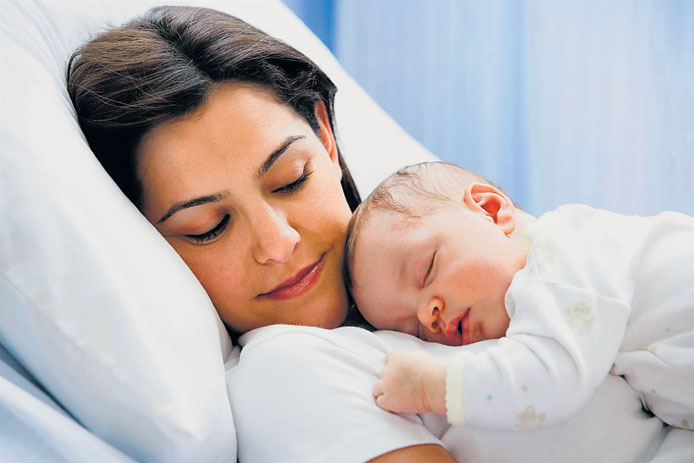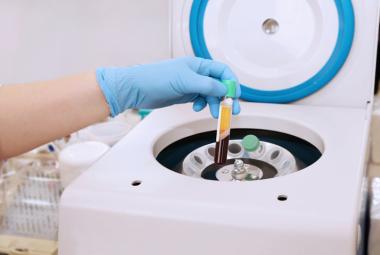Sudden infant death syndrome (SIDS) is the unexplained death of a seemingly healthy baby, usually during sleep. It is also called as crib death.It is the leading cause of post neonatal death in developed countries and the eighth leading cause of years of potential life lost.
A recent meta-analysis has suggested that breastfeeding reduces the risk of sudden infant death syndrome.1 In this meta-analysis of 288 studies with data on breastfeeding and SIDS identified, 265 were abstracts and 23 studies were identified through review articles and meta-analyses. One hundred and eighty four reports were excluded on the basis of the abstracts alone and 104 articles were selected for further review. Twenty-four original case-control studies were identified out of 104, and were evaluated for their relationship between breastfeeding and SIDS risk. Two teams of two reviewers each evaluated the study quality, with 12 studies in each team.
According to the reviewers, for infants who received any amount of breast milk for any duration, the univariable SOR(summary odds ratio) was 0.40, and the multivariable SOR was 0.55. For any breastfeeding infant at 2 months of age or older, the univariable SOR was 0.38. The univariable SOR for exclusive breastfeeding of any duration was 0.27.
These authors suggested that breastfeeding is associated with a decreased risk of SIDS and exclusive breastfeeding and breastfeeding for longer duration together are associated with the greatest reduction in risk.
The protective effect of breastfeeding against SIDS has biological plausibility. According to researchers, the possible mechanisms by which breastfeeding may decrease the risk of SIDS, are as follows:
- Breastfed infants are more easily aroused from active sleep than formula-fed infants at 2 to 3 months of age, which is within the 2- to 4-month peak age during which SIDS occurs.2,3
- Breastfeeding also confers immunologic advantages over formula feeding by providing immunoglobulins and cytokines that may protect infants during the vulnerable period for SIDS, when their own production of immunoglobulin G is low and their maternally acquired levels of immunoglobulin are decreasing, which they acquired during pregnancy. Infants who die from SIDS often have had a minor infection in the days preceding death, These infections may induce pro-inflammatory cytokines that may cause respiratory or cardiac dysfunction, fever, shock, hypoglycemia, and arousal deficits.4,5 Therefore breastfeeding probably protects the infant from infections leading to SIDS.
However, this study has some limitations. Inadequate recall of breastfeeding duration may bias the results, potential limitation of their meta-analysis is that studies from which significant associations are reported may be preferentially published, which could result in an overestimate of the true effect and could bias the results.There was some heterogeneity of results, which indicates that results were not selectively reported. Another limitation identified by this meta-analysis was the small number of studies that presented data on breastfeeding duration, and when presented, there were different ways in which the duration was defined, which made it difficult to pool the results. This is an area that needs further investigation.
Nevertheless their meta-analysis suggests strong association between breastfeeding and a reduced risk of SIDS.
Sonia Shoukat M.D.
Thomas W. Hale Ph.D.
InfantRisk Center
References:
- Fern R. Hauck, MD, MS, John M. D. Thompson, PhD, Kawai O. Tanabe, MPH, Rachel Y. Moon, MD, and Mechtild M.Vennemann, MD, PhD. Breastfeeding and Reduced Risk of Sudden Infant Death Syndrome: A Meta-analysis. PEDIATRICS Vol. 128 No. 1 July 1, 2011 pp. 103 -110.
- Franco P, Scaillet S, Wermenbol V, Valente F, Groswasser J, Kahn A. The influence of a pacifier on infants' arousals from sleep. J Pediatr. 2000;136(6):775–779.
- Horne RS, Parslow PM, Ferens D, Watts AM, Adamson TM. Comparison of evoked arousability in breast and formula fed infants. Arch Dis Child. 2004;89(1):22–25.
- Vennemann MM, Bajanowski T, Brinkmann B, et al; GeSID Study Group. Does breastfeeding reduce the risk of sudden infant death syndrome? Pediatrics. 2009;123(3).
- Blackwell CC, Weir DM. The role of infection in sudden infant death syndrome. FEMS Immunol Med Microbiol. 1999;25(1–2):1–6.







